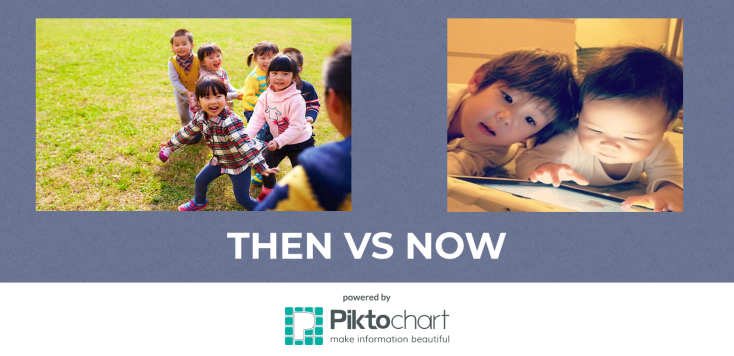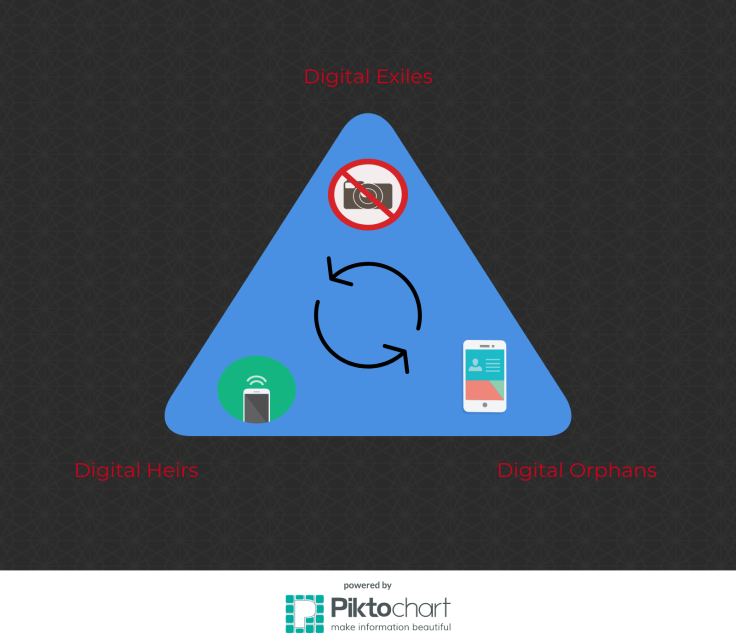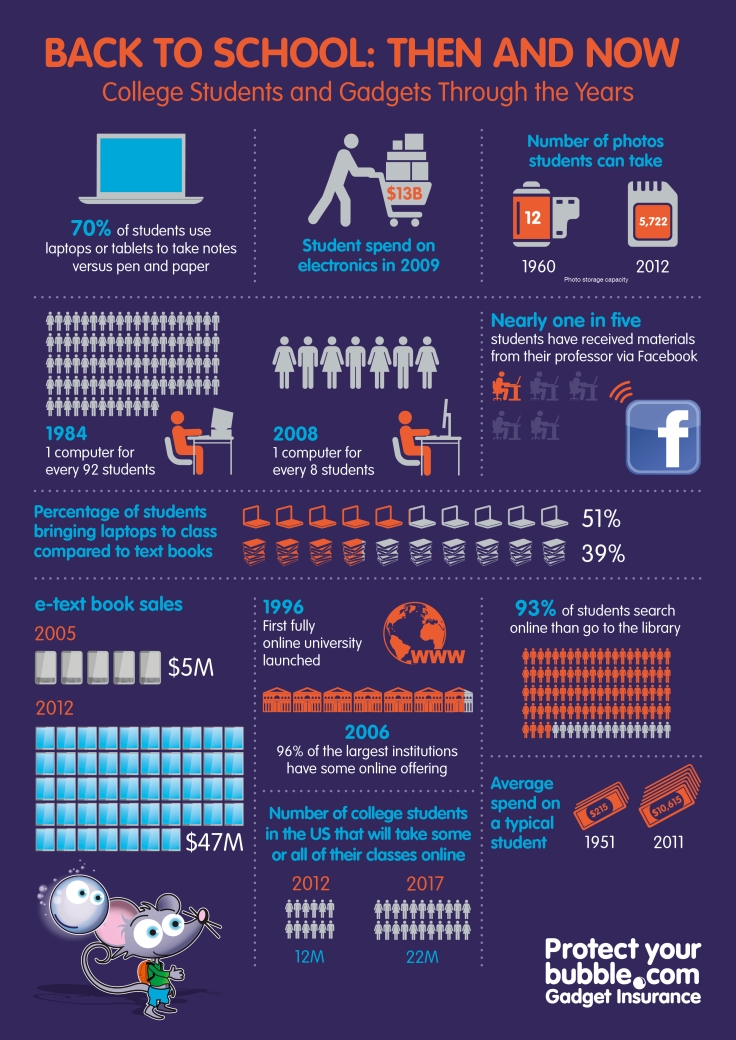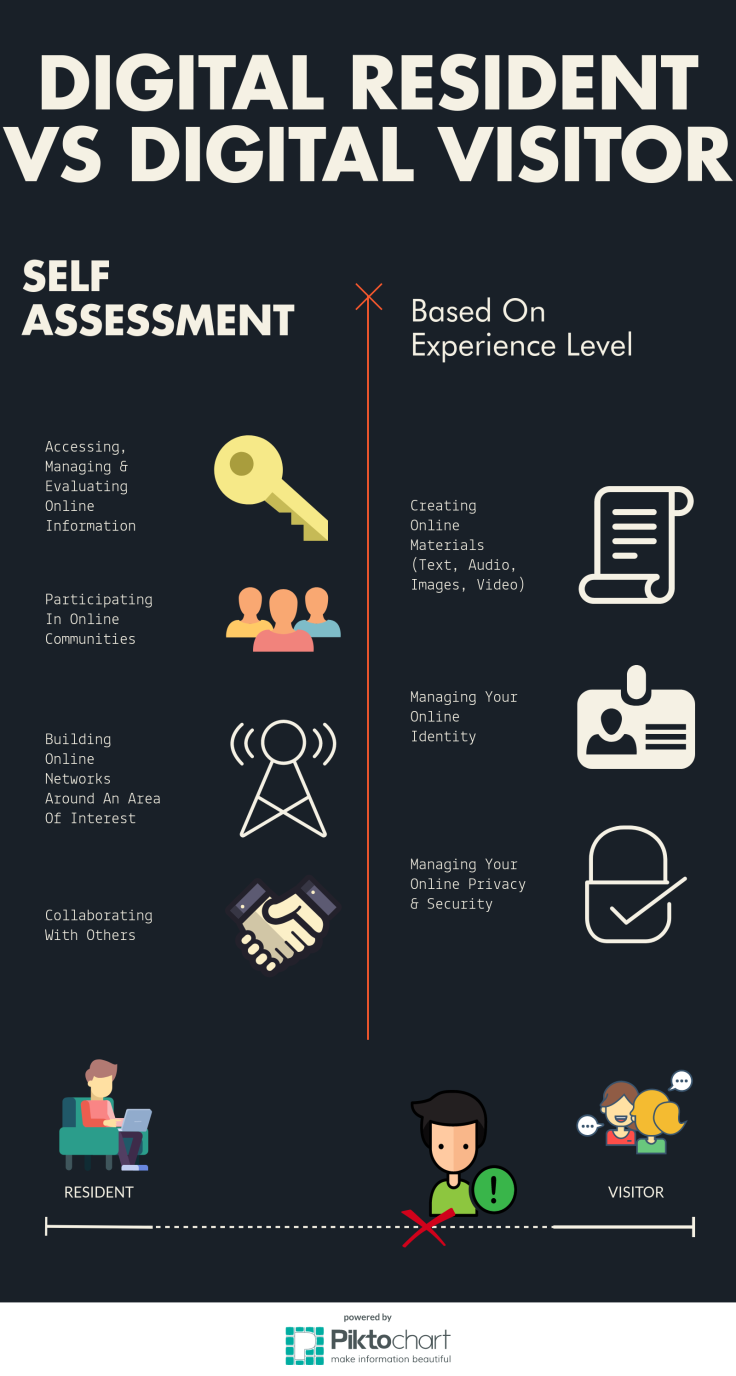12 days of #MANG2049 have gone past in a blink of an eye and it is finally the end of the module. Even though the class has come to a close, the knowledge and skills learnt from this module will carry me through as I continue to develop myself in the digital world.
Source: Self-Produced Via Biteable, Information Via #MANG2049
When the module first started, there was a self-test that all of us had to complete. This self-test questioned the various aspects of our digital profiles from the way we manage our online identity to how we collaborate with others.
After I took the test, the results showed that I scored moderately in all the aspects and this allowed me to see that I had a long way to go in understanding how to manoeuvre through the digital space.

Source: Self-Produced Via Piktochart, Information Via #MANG2049
In this blog post, I will be touching on some of the aspects that have influenced my journey drastically as well as what I plan to focus on for the future.
Accessing, Managing and Evaluating Online Information
Like any other user of the digital space, we become more reliant on social media such as Facebook and Twitter to get our news. However, as the number of channels increases so too does the avenue for fake news. Before going through #MANG2049, I seldom cross-checked information to challenge its authenticity. However, I have learnt to be more adept at accessing and evaluating online information.
Source: Self-Produced Via Biteable, Information Via Aaron Wong
One drastic change that I have adopted is to use the 3 C’s concept. This concept has allowed me to check the authenticity of any article by checking the citations, comparing it to other news outlets and reading the comments. So far, this concept has enabled me to filter out bad information and allowed me to be a more responsible user of the digital space.
Managing Your Online Identity
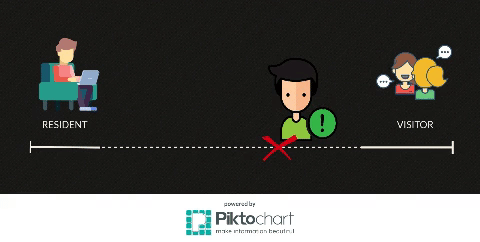
Source: Self-Produced Via Piktochart & Gighy
Being a responsible user of the digital space also requires me to maintain a positive identity online. Through the course, I noticed the change in me of a digital visitor to being a digital resident. Before #MANG2049, the concept of single and multiple identities was non-existent to me. I only knew to have a single identity which provided me with the ease of convenience as well as a high level of authenticity.
Unfortunately, a single identity approach has proven to be riskier. In this digital era, our personal information is widely available on the internet due to us oversharing on social media and this can lead to identity theft. Furthermore, as more employers screen the social media accounts of prospective employees, no matter how much I try to clean my social media account up, a random tagged post could ruin my chances.
As such, I have realised the importance of having multiple identities online, separating the personal from the professional to minimise these risks and am taking steps to better manage my online identity.
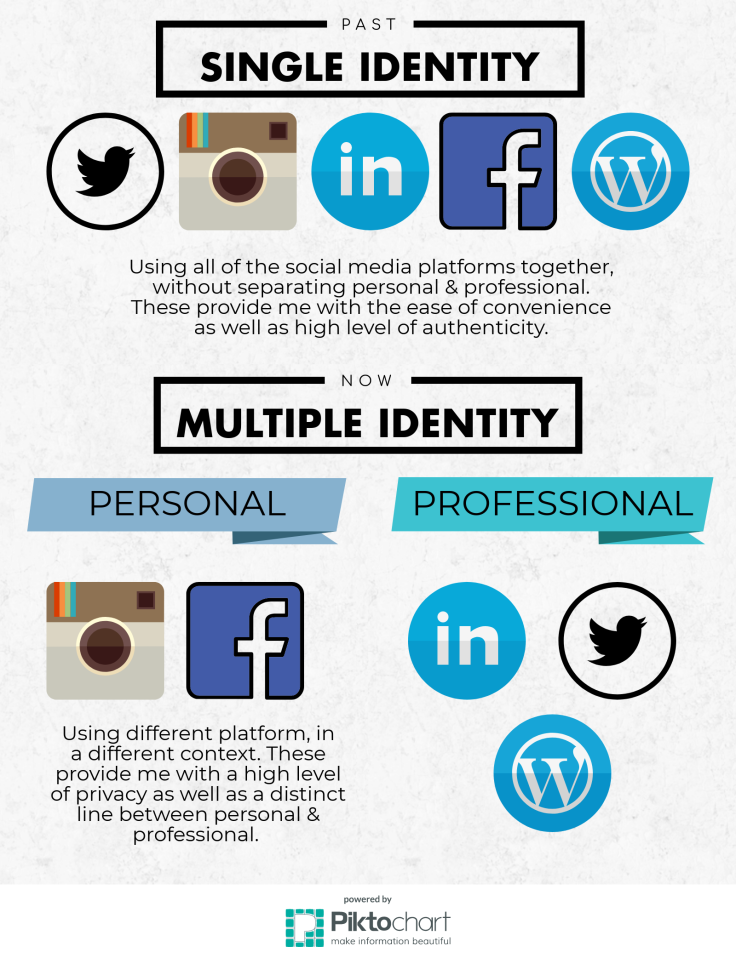
Source: Self-Produced Via Piktochart, Information Via Futurelearn (2017)
The Future
As a person who is looking into a career in Digital Marketing, there is a need for me to understand the digital space and be experienced in handling different situations online.
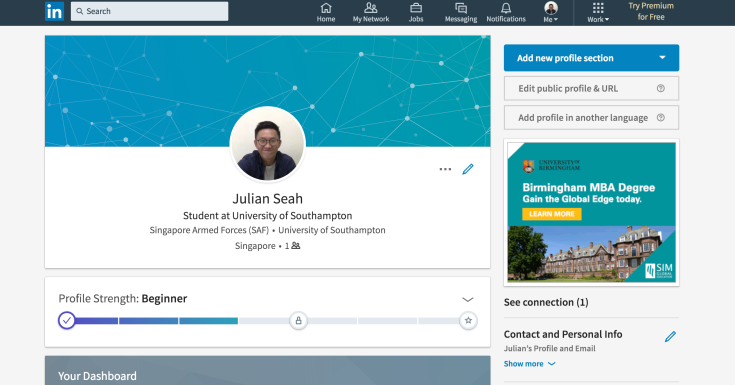
Source: Screenshot of LinkedIn’s Profile
But first, in order to kick-start my career, I will have to successfully manage both my personal and professional identities online. On the professional side, some actionable items that I plan to start would be to create a LinkedIn profile so that future employers can find me easily. In addition, I will follow thought leaders on the Digital Marketing sphere so that I can participate in the online community there and learn from them.
Being a Digital Marketer would mean having to live and breathe the goings-on around the internet. This means that discerning true information from deceiving ones has to be second nature to me. I may have some tools that will aid my learning but there is more than I have to learn by myself on how to verify information online.
Furthermore, as social media like Facebook and Instagram are important for a Digital Marketer, it is important that I keep up with the trends. As such, I plan to focus on curating posts on my Instagram and Facebook so that future employers who conduct social media scanning will observe that I am adept at handling myself on public domains and am up to date with the latest happenings.
Even though #MANG2049 is only the surface into an otherwise very deep ocean of digital experiences, I believe that having this solid foundation will aid me in my future endeavours. This course presented me with a very in-depth learning experience of the digital sphere through the use of blogging, Twitter and virtual seminars. Learning from these avenues also created a hands-on experience to developing a digital profile instead of just studying it 2-dimensionally. Despite it being the end, the building of my digital profile does not stop here and this is only the beginning of an exciting journey.
Last but not least, I want to thank all of my #MANG2049’s coursemates as well as Lisa, Sarah and Nicholas for the enriching experience.
(886 Words)
Reference:
Kathy Dyer (2015). The Importance of Student Self-Assessment. [online] Available: https://www.nwea.org/blog/2015/the-importance-of-student-self-assessment/
Wong Siew Ying (2016). ‘1 in 3 Singapore Consumers’ in Card Fraud. [online] Available: http://www.straitstimes.com/business/1-in-3-spore-consumers-victims-of-card-fraud
Chad Brooks (2017). Keep It Clean: Social Media Screening Gain In Popularity. [online] Available: https://www.businessnewsdaily.com/2377-social-media-hiring.html
Futurelearn (2017). What Is Your Network Identity? [online] Available: https://www.futurelearn.com/courses/learning-network-age/3/steps/263025


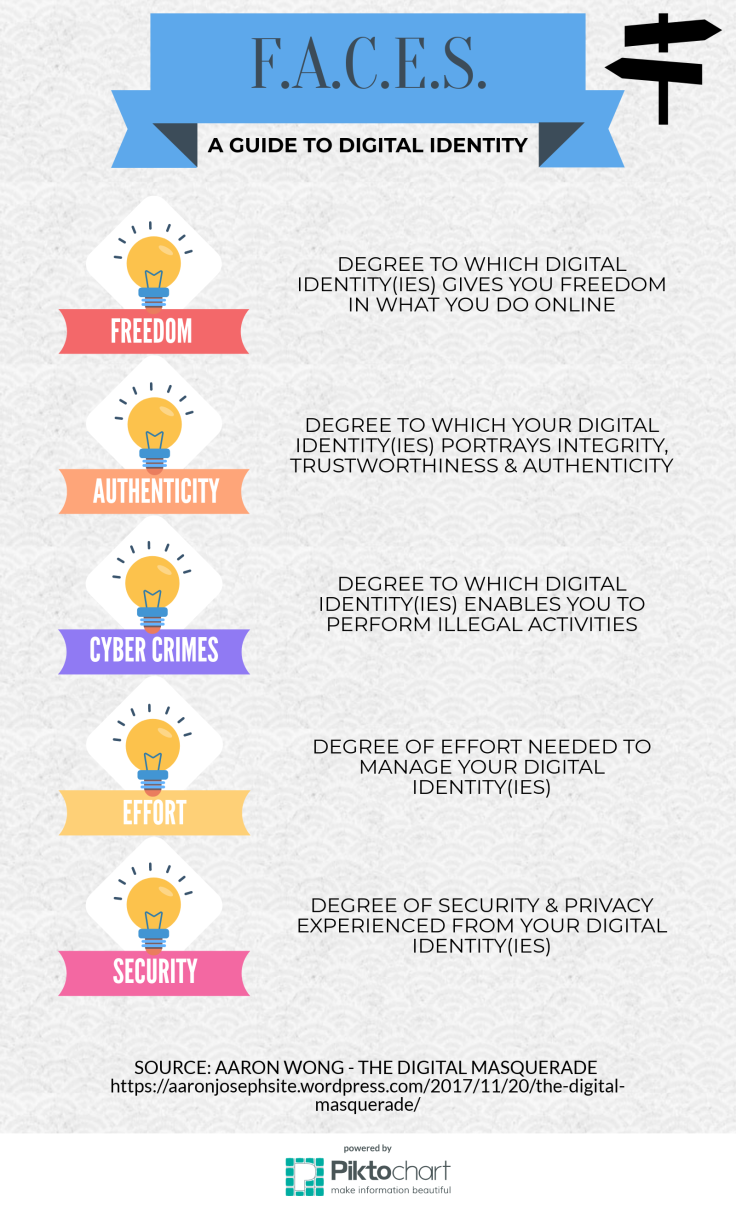

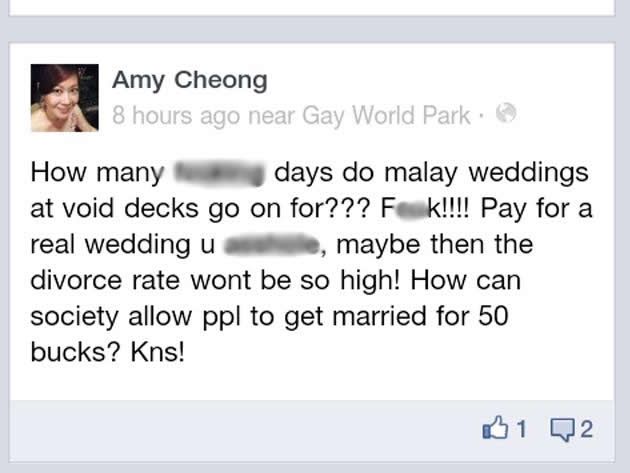
 Source: Self-produced Via Piktochart, using information from Futurelearn (2017)
Source: Self-produced Via Piktochart, using information from Futurelearn (2017)
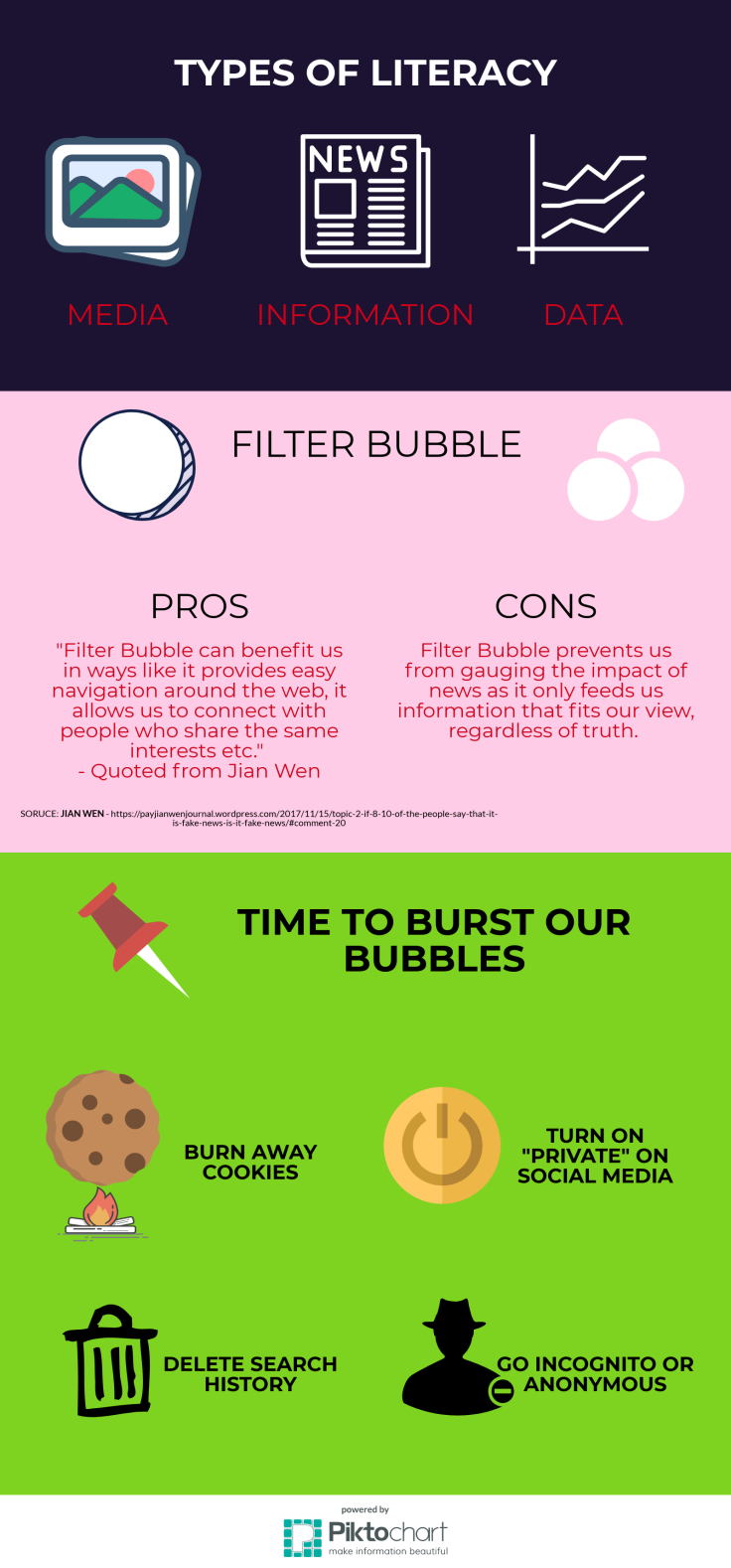 Source: Self – Produced Via Pikochart
Source: Self – Produced Via Pikochart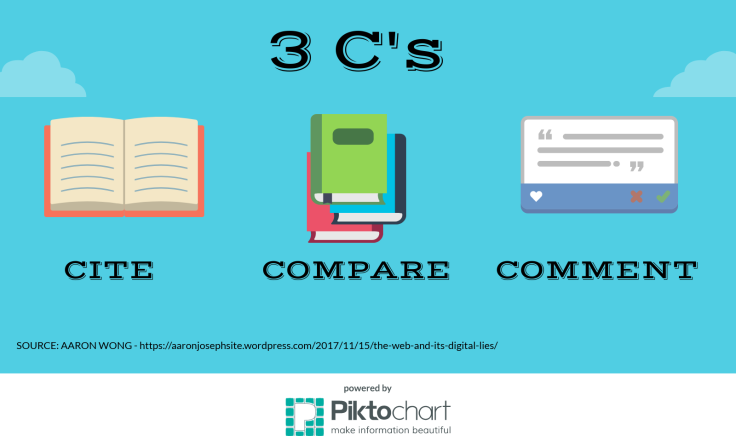 Source: Self – Produced Via Pikochart
Source: Self – Produced Via Pikochart
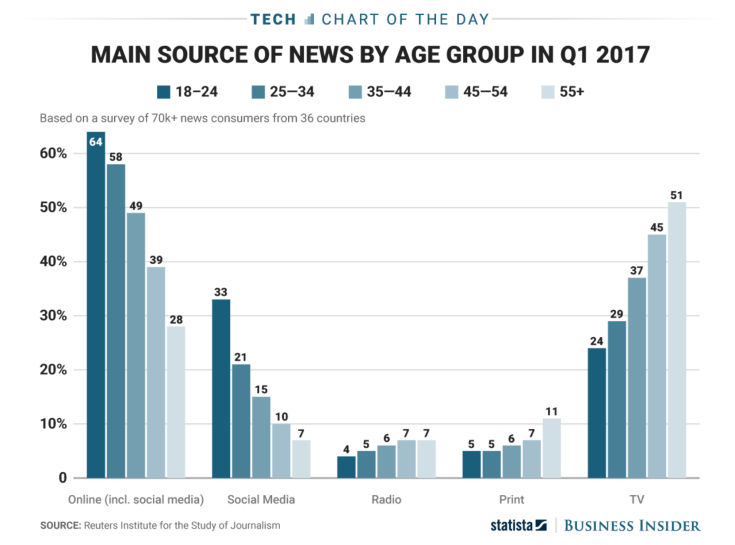 Source: Reuters Institute for the Study of Journalism
Source: Reuters Institute for the Study of Journalism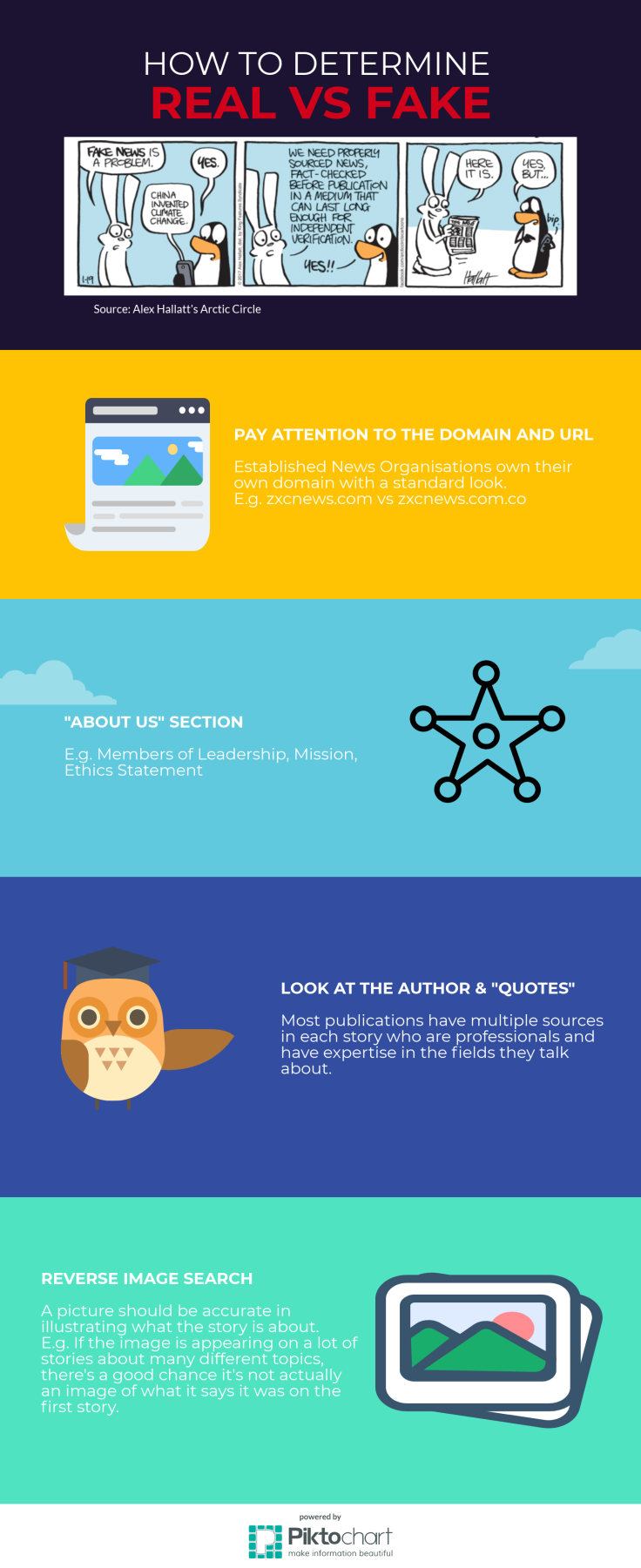 Source: Self-produced using information from NPR.org
Source: Self-produced using information from NPR.org
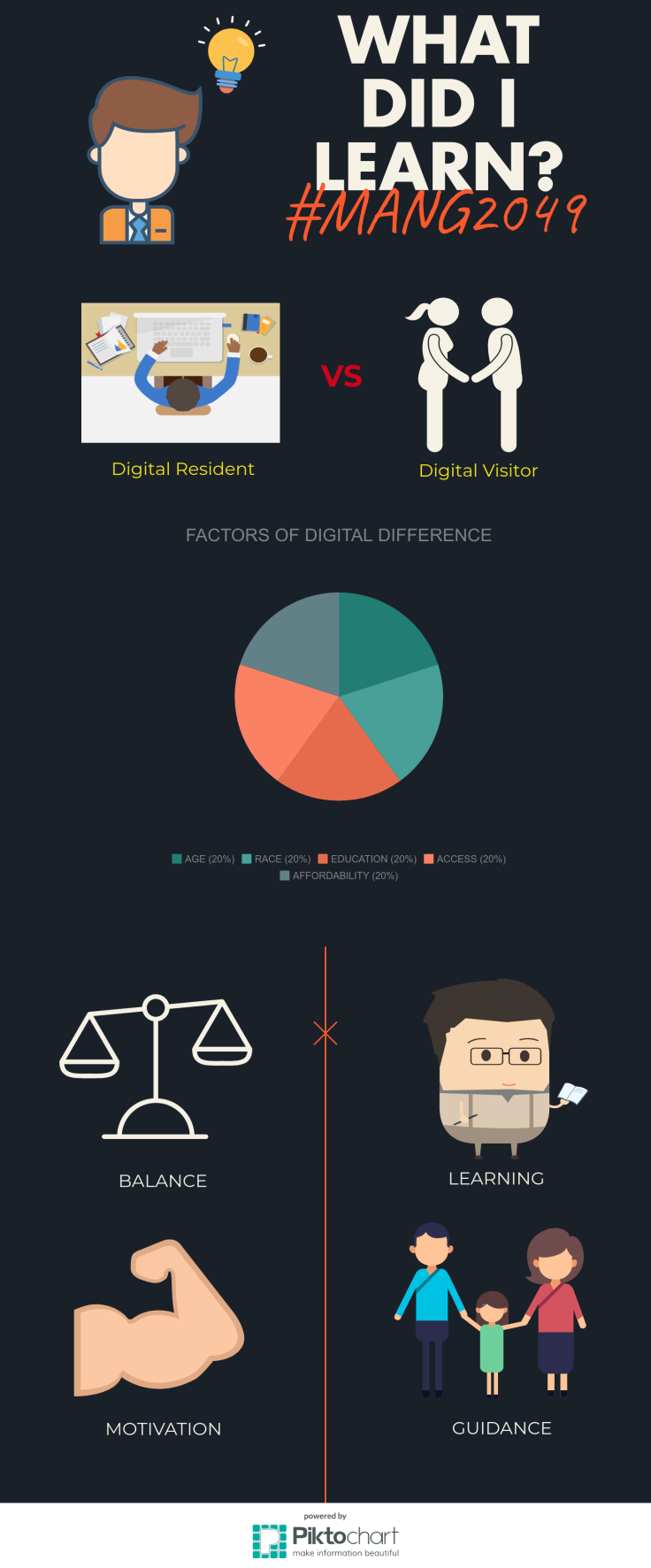 Source: Self-produced Via Piktochart
Source: Self-produced Via Piktochart
